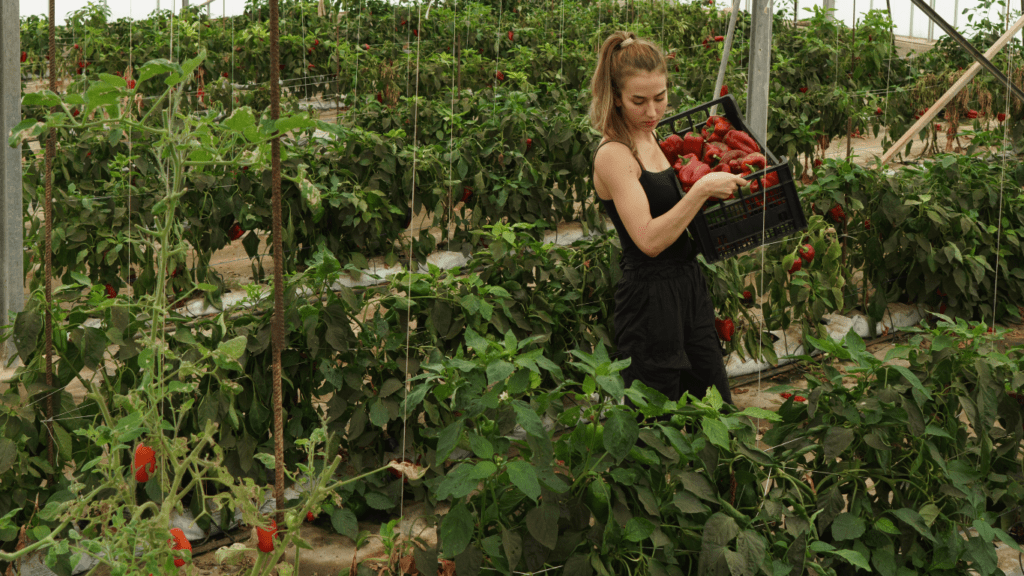Importance of Scholarships and Grants for Young Farmers
Scholarships and grants play a crucial role in supporting young farmers. Securing funding for education and operations is often a significant challenge, and financial support can make a substantial difference.
Scholarships help cover educational costs, enabling young farmers to acquire essential farming knowledge and skills from institutions without the burden of student loans.
Grants provide young farmers with the resources to invest in equipment and infrastructure. Access to modern technology and tools increases productivity and efficiency. Without grants, many young farmers struggle to afford these necessary investments, limiting their ability to grow and sustain their farming operations.
Financial support from scholarships and grants also encourages innovation. Young farmers can experiment with sustainable practices and advanced techniques, leading to improved yields and environmental benefits.
By alleviating financial pressure, scholarships and grants allow young farmers to focus on implementing and refining these innovative approaches.
Additionally, scholarships and grants reduce the economic barriers to entry in the farming sector. By providing financial assistance, they enable more young individuals to pursue careers in agriculture. This diversification strengthens the farming community, contributing to a more resilient agricultural industry.
Programs like these don’t just provide immediate financial relief; they foster long-term success. Many grants come with mentorship opportunities, networking events, and access to a community of like-minded professionals.
These elements are crucial for young farmers who are often navigating the complexities of the agricultural sector for the first time.
Scholarships and grants are vital in enabling young farmers to overcome financial and operational barriers, promoting innovation and sustainability, and fostering a diverse and resilient farming community.
Government-Funded Opportunities
Government-funded opportunities give young farmers access to essential resources. Offering both federal and state-level assistance, various programs provide financial support to help scale farming operations.
USDA Funding Programs
The United States Department of Agriculture (USDA) offers several funding programs to assist young farmers. The Beginning Farmer and Rancher Development Program (BFRDP) provides grants for education, training, and technical assistance. With awards ranging from $50,000 to $600,000, this program ensures young farmers gain the necessary skills and knowledge to succeed.
The Farm Service Agency’s (FSA) Youth Loans program supports individuals aged 10-20. These loans, up to $5,000, cater to projects in agriculture, providing young farmers with critical startup funds.
Another notable program is the Environmental Quality Incentives Program (EQIP). This initiative offers financial assistance for farmers implementing conservation practices on their land. Beneficiaries receive up to 75% of the costs covered, encouraging sustainable agriculture.
State-Specific Grants
State-specific grants vary across different regions, tailored to local agricultural needs. For instance, California’s Young Farmers Grant Program provides up to $15,000 for those beginning their farming journey. This grant covers costs related to equipment, infrastructure, and seedlings.
In New York, the New York State Young Farmers Loan Forgiveness Program offers repayment assistance for state residents who engage in agriculture for at least five years post-graduation. Beneficiaries can receive up to $50,000 in loan forgiveness.
Similarly, the Texas Young Farmer Grant Program allocates funds to support new agricultural projects, offering up to $20,000 per application. This program focuses on innovative practices and sustainable farming.
Constantly evolving, state-specific grants adapt to new challenges, ensuring young farmers receive timely and relevant support. By leveraging these resources, young farmers can overcome economic hurdles and contribute to a robust agricultural sector.
Non-Profit and Private Sector Scholarships
Young farmers benefit significantly from scholarships provided by non-profit organizations and private sector entities. These opportunities can bolster their farming ventures by providing vital financial support.
National Young Farmers Coalition

The National Young Farmers Coalition (NYFC) offers several scholarships to support young and beginning farmers. NYFC’s Young Farmer Grant Program provides financial assistance to help farmers under 40 make capital improvements and implement innovative farming practices. Applicants must be members of NYFC, and the grants often target projects like purchasing equipment, seeds, and livestock.
Farm Aid Scholarships
Farm Aid supports young farmers through scholarship programs aimed at alleviating financial burdens. Farm Aid’s Farmer Resource Network connects farmers with various scholarship opportunities.
These scholarships often cover educational expenses for farming-related courses and workshops. Applicants typically need to demonstrate financial need and a commitment to sustainable farming practices.
Education-Based Scholarships
Scholarships focused on education help young farmers gain essential knowledge and skills. These opportunities offer financial support to attend educational institutions and participate in training programs.
Agricultural Universities and Colleges
Many agricultural universities and colleges offer scholarships tailored to young farmers. Institutions such as Cornell University and Texas A&M provide scholarships for students pursuing degrees in agriculture.
These scholarships often cover tuition, fees, and sometimes living expenses. They aim to help young farmers gain the technical expertise and business skills necessary for successful farming operations.
Extension Programs and Workshops
Extension programs and workshops sponsored by universities and state agricultural departments provide another layer of support. Examples include the University of California’s Cooperative Extension and the University of Florida’s IFAS Extension.
These programs often include scholarships that fund participation, covering costs such as:
- registration fees
- materials
- travel expenses
They focus on hands-on learning and provide valuable networking opportunities, helping young farmers stay updated with the latest farming techniques and innovations.
Tips for Applying to Scholarships and Grants
Securing scholarships and grants can make a substantial difference in a young farmer’s journey. Here are insights to help navigate and succeed in the application process.
Navigating the Application Process
Understanding the application steps is crucial.
- First, gather all required documents. This typically includes identification proof, academic records, and farming experience documentation.
- Next, adhere to deadlines. Late submissions usually result in disqualification. Thoroughly read and meet eligibility criteria before applying. Use detailed and concise language while writing personal statements and essays.
- Highlight accomplishments and future goals in the farming sector.
- Contact references early—ensure they understand the scholarship’s goals and your agricultural ambitions.
Key Factors for a Successful Application
A successful application stands out. Tailor each application to fit the specific scholarship’s objectives. Avoid generic responses by directly addressing how the grant or scholarship will benefit your farming career. Showcase your passion for farming through personal stories and experiences.
Present strong letters of recommendation from reputable sources in the agriculture industry. Organize your application materials neatly—clear and well-structured applications are more likely to capture evaluators’ attention. Lastly, follow all instructions meticulously; incomplete or incorrect submissions often lead to rejection.



